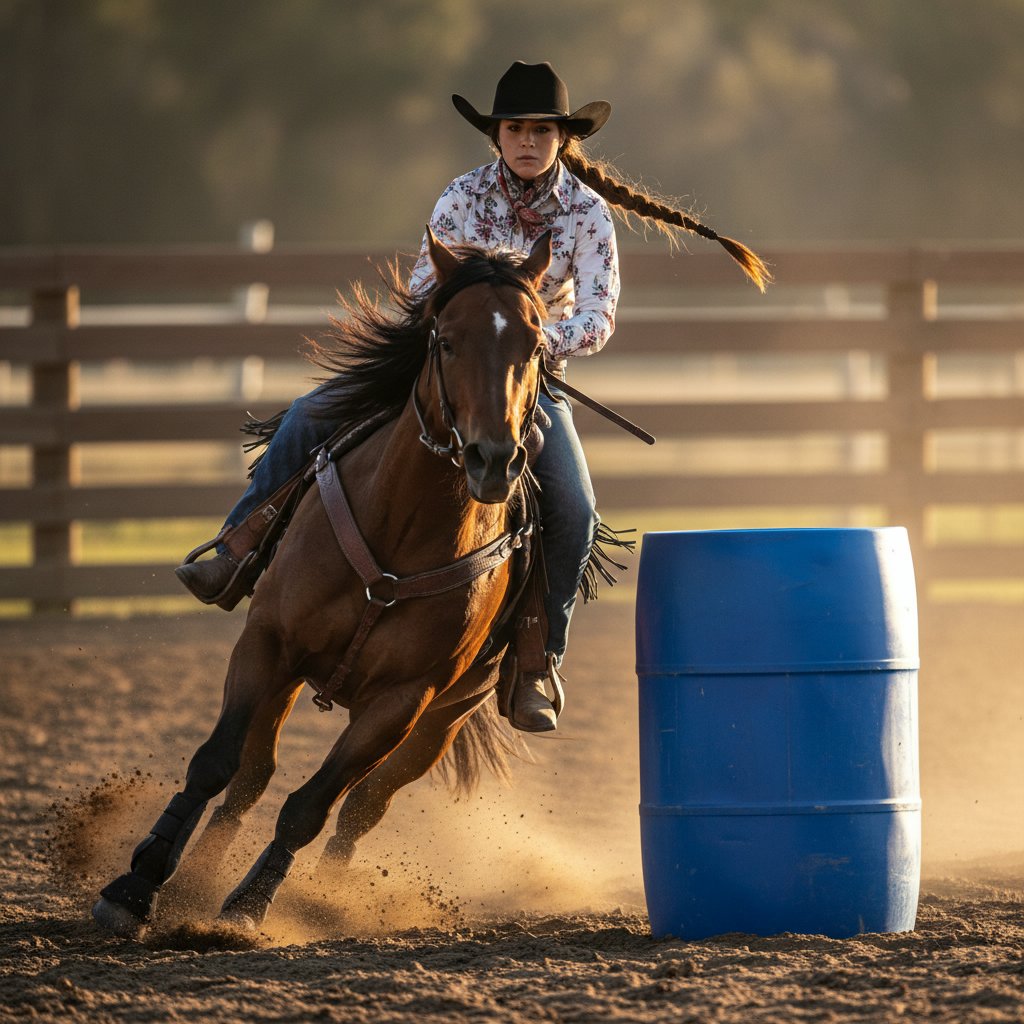Fermented Rice Water vs. Regular Rice Water: Which Is Better for Hair? | The Ultimate Guide
Fermented Rice Water vs. Regular Rice Water: Which Is Better for Hair?
For centuries, the women of the Yao village in Huangluo, China, have been famous for their incredibly long, strong, and greyless hair. Their secret? A traditional hair wash made from rice water. As this ancient beauty secret has permeated modern hair care culture, a significant debate has emerged among trichologists, stylists, and beauty enthusiasts: Fermented Rice Water vs. Regular Rice Water—which is better for hair?
While both versions originate from the same simple ingredient, the chemical processes they undergo create two distinct treatments with different pH levels, nutrient profiles, and effects on the hair shaft. Choosing the wrong one for your specific hair porosity or texture could lead to protein overload or dryness, while choosing the right one could be the key to unlocking unprecedented growth and shine.
In this comprehensive guide, we will delve deep into the science of rice water, compare the benefits of fermented versus plain versions, and help you decide which method deserves a place in your hair care routine.
The Science Behind Rice Water: More Than Just Starch
Before comparing the two methods, it is essential to understand why rice water is beneficial in the first place. When rice is soaked or boiled, it releases a milky fluid rich in starch, but the benefits go far deeper than surface-level coating. Rice water is packed with amino acids, B vitamins, vitamin E, minerals, and antioxidants. However, the star component that has scientists and stylists excited is inositol.

Inositol is a carbohydrate often referred to as a "hair repairer." It has the unique ability to penetrate damaged hair and repair it from the inside out. Even more impressively, inositol stays inside the hair fiber even after rinsing, offering continuing protection against friction and damage. Whether you choose fermented or regular water, you are introducing this powerhouse ingredient to your strands.
However, the bioavailability of these nutrients—how easily your hair can absorb and use them—changes drastically depending on how the water is prepared. This brings us to the core comparison: the difference between fresh, plain rice water and the sour, potent fermented variety.
Regular (Plain) Rice Water: The Gentle Approach
Regular rice water is the liquid obtained immediately after soaking rice for a short period (usually 30 minutes to two hours) or the water left over after boiling rice. It is milky, relatively odorless, and easy to prepare. But is it effective?

The Benefits of Regular Rice Water
1. Surface-Level Smoothing: Regular rice water is rich in starch. When applied to the hair, this starch coats the outer cuticle. This can provide an instant feeling of thickness and smoothness. For those with fine hair, this coating effect can add much-needed volume and body without the heaviness of oils or silicones.
2. Mildness for Sensitive Scalps: Because it hasn't undergone fermentation, the bacterial count in regular rice water is lower, and the pH is closer to neutral (though still slightly alkaline compared to hair). For individuals with extremely sensitive scalps or those prone to irritation, the plain version serves as a gentle introduction to the treatment without the intensity of organic acids found in fermented versions.
3. Convenience: The primary appeal of regular rice water is speed. It can be made and used within the same hour. There is no waiting period for fermentation, making it an accessible option for those with busy lifestyles who want a quick protein boost.
The Drawbacks
The main downside to regular rice water lies in its pH level. Plain rice water typically has a pH between 6.0 and 7.0 (or higher if tap water is alkaline). Human hair has a natural pH of roughly 4.5 to 5.5. Applying a higher pH solution can cause the hair cuticles to raise slightly, potentially leading to friction and frizz if not followed by a pH-balancing conditioner. Furthermore, the nutrients in plain rice water are not as broken down, meaning they may not penetrate the hair shaft as deeply as they would in a fermented solution.
Fermented Rice Water: The Potent Powerhouse
Fermented rice water is rice water that has been left to sit at room temperature for a period of 12 to 48 hours until it turns slightly sour. This souring is the result of fermentation, where natural yeasts and bacteria (like Lactobacilli) break down the carbohydrates in the liquid.

The Superiority of Fermentation
1. Enhanced Nutrient Absorption (Pitera): During fermentation, a substance known as "Pitera" is produced. This is a yeast filtrate rich in vitamins, amino acids, minerals, and organic acids. The fermentation process breaks down large molecular compounds into smaller ones, making it significantly easier for the hair shaft to absorb the nutrients. In the battle of Fermented Rice Water vs. Regular Rice Water, fermentation wins on bioavailability.
2. pH Balance and Cuticle Health: This is the most critical differentiator. Fermentation lowers the pH of the rice water, making it acidic. As the pH drops to align closer to hair's natural level (4.5-5.5), the acidic environment encourages the hair cuticles to lay flat. Closed cuticles reflect light better (creating shine) and lock in moisture. This makes fermented rice water a natural conditioner and detangler.
3. Higher Antioxidant Levels: Studies suggest that the antioxidant levels in rice water increase during fermentation. Antioxidants are vital for scalp health, helping to fight oxidative stress caused by free radicals and UV exposure, which can age the hair follicle and lead to shedding.
Comparative Analysis: pH Levels and Porosity
When determining "Fermented Rice Water vs. Regular Rice Water: Which Is Better for Hair," one must consider hair porosity. Porosity refers to your hair's ability to absorb and retain moisture.

Low Porosity Hair
Low porosity hair has tightly bound cuticles that resist moisture. Because regular rice water has a higher pH, it might actually help slightly lift the cuticle to allow moisture in, but the heavy starch can also cause buildup. However, fermented rice water is generally preferred even here because the smaller molecules penetrate better. Low porosity hair types should use fermented water sparingly to avoid protein overload, perhaps diluting it significantly.High Porosity Hair
High porosity hair has gaps and holes in the cuticle, often due to damage or genetics. It absorbs moisture quickly but loses it just as fast. Fermented rice water is the clear winner for high porosity hair. The acidic pH helps seal those open cuticles, trapping moisture inside and repairing the gaps with inositol and amino acids. The smoothing effect is often immediately visible on high porosity textures.The "Yao Women" Method: Why Fermentation is Traditional
It is worth noting that the Yao women, the originators of this method, do not use plain rice water. They boil the rice water with pomelo peels (for fragrance and Vitamin C), tea bran, and ginger, and then allow it to ferment for weeks in an earthenware pot. They view the mixture as a living culture.

The addition of heat (boiling) followed by fermentation creates a super-concentrated elixir. The fact that the longest-haired village in the world exclusively relies on the fermented variation provides strong anecdotal evidence that for long-term growth and health, fermentation is superior to the quick-soak method.
Step-by-Step Preparation Guides
To test which works best for you, you need to know how to prepare them correctly.

How to Make Regular Rice Water (The Quick Method)
- Rinse: Take ½ cup of uncooked rice (white, brown, or jasmine) and rinse it thoroughly to remove dirt.
- Soak: Place the rice in a bowl with 2-3 cups of water.
- Wait: Let it sit for 30 minutes to 2 hours. The water should turn cloudy and milky.
- Strain: Strain the rice (save it for cooking!) and keep the water.
- Use: Apply immediately or store in the fridge for up to 24 hours.
How to Make Fermented Rice Water (The Potent Method)
- Rinse: Rinse ½ cup of rice thoroughly.
- Soak: Place rice in a jar with 2-3 cups of water.
- Ferment: Cover the jar loosely (or use a cloth) and leave it at room temperature for 24 to 48 hours. In warmer climates, 24 hours is sufficient. You will know it is ready when it smells slightly sour.
- Stop Fermentation: Once fermented, strain the water into a clean bottle. To stop the fermentation process, place the water in the refrigerator.
- Dilute: Fermented rice water is very potent. Before using, dilute it with plain water (typically a 1:10 ratio for beginners, or 1:5 for experienced users).
Application Techniques for Maximum Results
Regardless of whether you choose fermented or regular, the application is key to avoiding dryness or breakage.

The Rinse Method: After shampooing, pour the rice water over your hair and scalp. Massage it into the scalp gently to stimulate blood flow. Let it sit for 15 to 20 minutes. Rinse thoroughly with cool water. Follow with a deep conditioner. This is crucial: rice water is a protein treatment, and protein must always be balanced with moisture.
The Spray Bottle Method: For a lighter application, put your diluted rice water in a spray bottle. Mist it onto damp hair before styling. This works well for refreshing curls, but be wary of buildup if you do not wash your hair frequently.
Essential Tips for Success
- The Smell Factor: Fermented rice water has a distinct, sour aroma. To combat this, add a few drops of essential oils like lavender, peppermint, or rosemary (which also stimulates growth) to the mixture before applying.
- Don't Overdo It: Protein overload is real. If your hair starts feeling stiff, straw-like, or brittle, you are using rice water too often. Start with once every two weeks and monitor how your hair responds.
- Clarify: Rice water can leave starch buildup on the scalp. Ensure you use a clarifying shampoo once a month to keep your follicles clear.
- Boiling vs. Soaking: Boiling the rice before fermenting (using the excess water from cooking) releases more starch than soaking raw rice. If you have fine hair, the raw soak method might be lighter and better; if you have thick, coarse hair, the boiled water method offers more heft and coating.

FAQ: Common Questions About Rice Water
1. Can I leave rice water in my hair overnight? It is not recommended. Rice water is a protein-heavy treatment. Leaving it on for too long can lead to protein overload, making the hair brittle and prone to breakage. 20-30 minutes is usually the sweet spot.
2. Does fermented rice water change hair color? Generally, no. However, the Yao women claim it helps prevent grey hair. There are no reports of it depositing color, but the buildup could potentially make blonde hair look dull if not rinsed properly.
3. How long does fermented rice water last? Once fermented and placed in the refrigerator, it can last up to a week. If it starts to smell rotten (rather than just sour) or develops mold, discard it immediately.
4. Is fermented rice water safe for color-treated hair? Yes, and it can be beneficial. The acidic pH of fermented rice water helps close the cuticle, which can help lock in hair color and prevent fading. Just ensure you follow up with a moisturizing conditioner.
5. Which rice type is best? White rice, brown rice, jasmine, and basmati all work. Brown rice has more protein, while white rice has more starch. Many users prefer organic jasmine rice for the scent and starch content.
6. Can rice water cause hair loss? If used incorrectly (too frequently or without rinsing), the protein buildup can snap the hair, looking like hair loss. Additionally, if the starch accumulates on the scalp, it can clog follicles. Used correctly, it promotes growth, not loss.
Conclusion: The Verdict
When weighing Fermented Rice Water vs. Regular Rice Water, the fermented version is scientifically superior for long-term hair health. The lower pH aligns better with hair's natural chemistry, the fermentation process enhances nutrient bioavailability, and the production of Pitera offers unique repair benefits that plain water cannot match.
Regular rice water acts as a decent, quick surface-smoother, but it lacks the depth of treatment that fermentation provides. If you are serious about hair growth and repair, taking the extra 24 hours to ferment your rice water is a worthy investment of time.
However, listen to your hair. Hair care is deeply personal. Start with a diluted fermented rinse once every two weeks, observe the texture and elasticity of your strands, and adjust your routine accordingly. With patience and consistency, this ancient ritual can transform your hair from lackluster to luminous.


